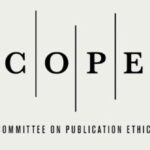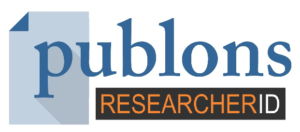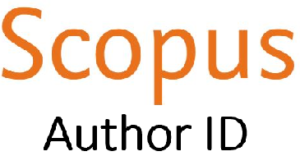Gulshan J. Karhade![]()
![]() , Jopasana S. Adkane
, Jopasana S. Adkane![]() and Sachin C. Narwadiya
and Sachin C. Narwadiya![]()
- Pathology Laboratory Technologist , Regional Ayurveda Research Institute for Mother and Child Health Gharkul Parisar, NIT Complex, Nandanwan, Nagpur, Maharashtra-440009.
- Department of Pediatric, F.G. Motiwala P.G. Institute of Homoeopathy & Research Centre, Motiwala Nagar Gangapur – Satpur Link Road, Via Ashok Nagar, Gangapur, Nashik- 422 012
- Vigyan Prasar, autonomous organization under DST,GOI, A-50, Institutional Area, Sector 62, Noida Uttar Pradesh 201309, India.
 gulshankarhade@rediffmail.com
gulshankarhade@rediffmail.com
Received: Aug 29, 2020 / Accepted: Sept 19, 2020/ Published: Sept 29, 2020
Abstract
The medical practitioners, paramedical staff, and their family members are at risk of catching the coronavirus infection. Proper following of Good Laboratory Practices (GLPs) and precautionary measures are the prerequisites for the safety of healthcare workers and doctors. The in-depth study on the medical practitioners, paramedical staff, medical laboratory personnel, towards the proneness of catching of coronavirus infections is the need for the present time. Many doctors, healthcare workers have fallen prey to the novel coronavirus infection, and out of them, some died too. The incorporation of good hygiene practices can stop further infection spread among healthcare persons. The nosocomial infections i.e the infections spread in the hospital will include coronavirus infection as a major cause of death rate if proper attention was not paid in hospital having both coronavirus and other disease patients. The workplace hygiene practices for any healthcare workers and doctors start from the time of joining duty to the end time of duty. The safe disposal of Personal Protective Equipment (PPE) kits and hospital waste also ensure that the infection will not spread further in society.
Keywords Coronavirus, Covid-19, Pandemic and Public Health
How to cite this article
Karhade, G.J., Adkane, J.S. and Narwadiya, S.C. (2020) Healthcare service provider’s precautions for safety in Covid-19 pandemic–a review study. Science Archives, Vol. 1 (2), 68-69.
Crossref DOI
http://dx.doi.org/10.47587/SA.2020.1204
Copyright
This is an open-access article distributed under the Creative Commons Attribution License which permits unrestricted use, distribution, and reproduction in any medium, provided the original work is properly cited.
References
Carter, B., Collins, J. T., Barlow-Pay, F., Rickard, F., Bruce, E., Verduri, A., …& Stechman, M. J. (2020). Nosocomial COVID-19 infection:examining the risk of mortality. The COPE-Nosocomial Study (COVID in Older PEople). Journal of Hospital Infection, 106(2), 376-384.
Rajshree, Chauhan, A., Ranjan A., Jindal T. (2020) Impact of COVID-19 lockdown on water quality of Dubai creek lagoon Science Archives, Vol. 1 (1), 1-6. DOI: http://dx.doi.org/10.47587/SA.2020.1101.
Ranjan, A.; Chauhan, A.; Gurnani, M.; Jindal, T. Potential Phytochemicals as Efficient Protease Inhibitors of 2019-nCoV . Preprints 2020, 2020040240 (doi: 10.20944/preprints202004.0240.v1).
Opportunities and developments Report on the second global survey on eHealth Global Observatory for eHealth series – Volume 2 TELEMEDICINE in Member States ISBN 978 92 4 156414 4 (NLM classification: W 26.5) ISSN 2220-5462, 2009.
https://www.who.int/medical_devices/meddev_ppe/en/accessed on 10-07-2020
https://covidindia.org/accessed on 10-08-2020
https://www.who.int/csr/resources/publications/biosafety/Biosafety7.pdf?ua=1 accessed on 10-07-2020.
https://www.mohfw.gov.in/pdf/Telemedicine.pdf accessed on 10-08-2020
https://www.ncbi.nlm.nih.gov/pmc/articles/PMC7372282/accessed 0n 25-07-2020.
Licence
This work is licensed under a Creative Commons Attribution 4.0 International License.
![]()















